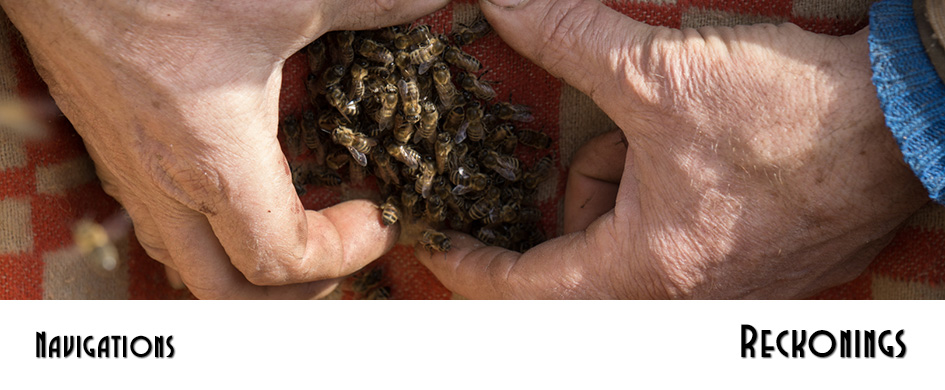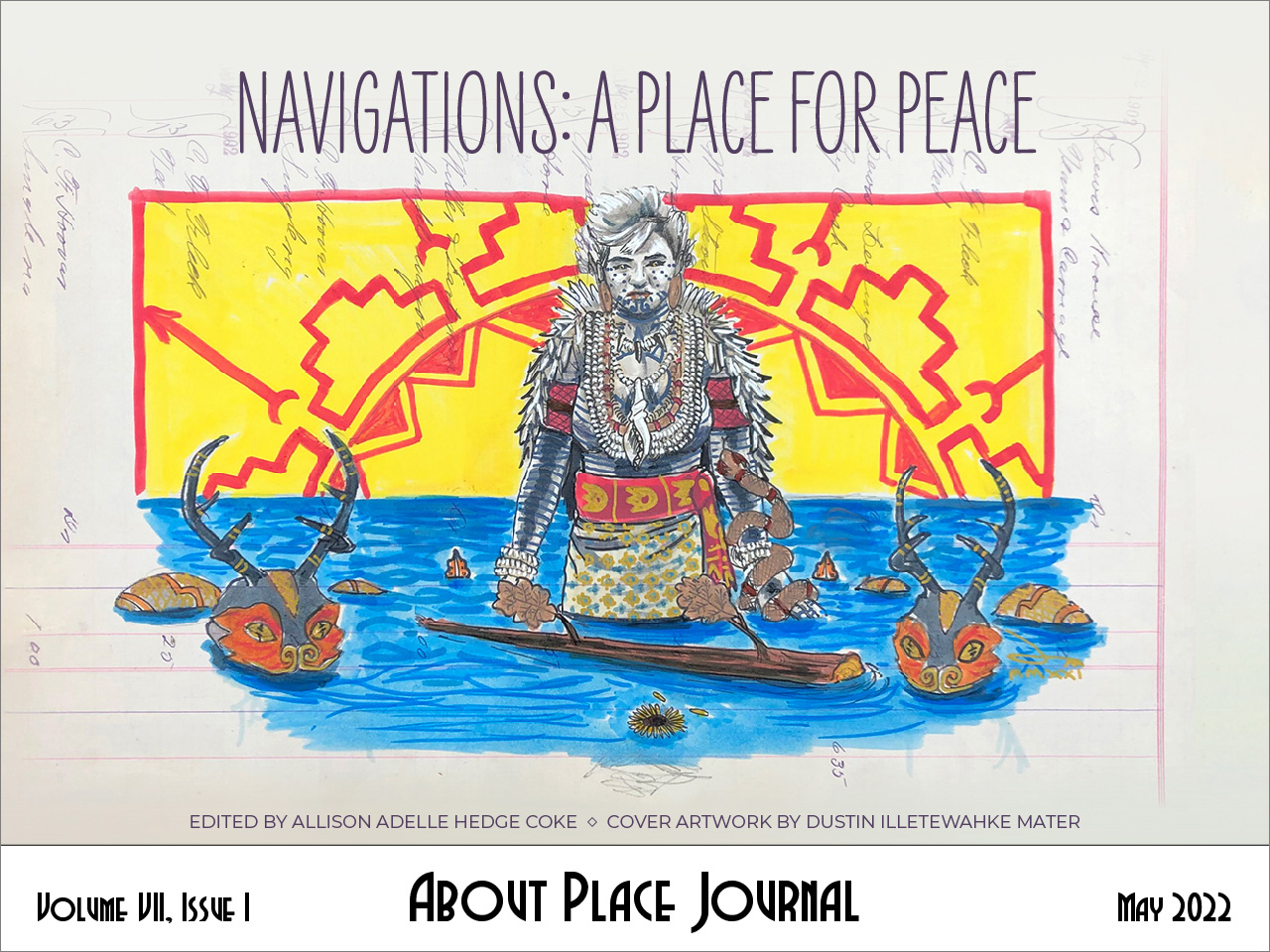are scoured, scraped, and washed,
with current and temperature,
wiping away our footprints with springmelt
and midsummer flow.
I see you weaving
this state into words, and shaping and threading
salmon bones on a dress,
carving cedar and yew,
painting the hollows of orbitals, even.
You dance in the dress,
finger the pages of the poem,
pull strands of human hair through the forehead
of the ceremonial mask.
Fragments
of fins and blood, a minute scent of all
our creations remain.
You can still taste their flesh.


